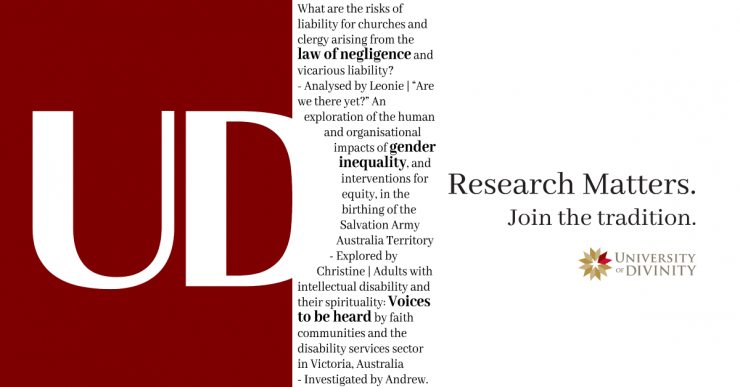What’s the ‘F’? ‘Fake news’? ‘Filioque’? ‘Facebook’? ‘Freedom’? or…?
In a world of QAnon, Twitterati, and the myriad of social media platforms that masquerade as ‘news’ sources, it probably sounds terribly passé to suggest that a theological student should have even a passing interest in the ‘F’ of ‘facts’, let alone the altogether more grandiose claim to be able to discover ‘truth’. But, if the practical theologian, Rick Osmer, is correct, there are at least four tasks for theological research. The first of those is accurate, careful, honest, or ‘thick’ description of facts. The careful laying out of empirical facts matter!
For example, research undertaken by the historian of Christian or religious history matters because it seeks to engage with facts and the implications of the way that facts might be ignored, obscured, interpreted, explained away, or harnessed to support particular agendas.
Does the facticity of terrible genocides matter? The Crusades? Colonial frontier massacres in Australian? The Holocaust? Rwanda? The Balkans? Historical research within the University is certainly encouraged to explore multiple interpretive perspectives and possibilities. Careful research that documents eyewitness accounts, personal testimonies and narratives matter, because the facts these point to are necessary correctives to the wild conspiracy theories that circulate online. For a researcher in a University of Divinity, because we believe that God matters, facts matter. Something about Jesus and truth comes to mind.
Of course, it’s overly simplistic to believe that it’s enough to ‘let the facts speak for themselves!’ Researchers with a commitment to practical theology are all too aware that the complexities of human and organisational behaviour require careful, self-critical interpretation in addition to systematic description or narrative accounts of oral history, congregational practices, or case studies of clinical counselling. The facticity of religious phenomena (observable behaviours or actions, or accounts of the same) may be fraught where these emerge out of complex inter-relationships. The meaning of religious phenomena is surely a matter of perspective and interpretation. However, an earnest and genuine desire to more carefully express or practice something that is both truthful and beautiful ought to be a hallmark of the outcomes of practical theological research within our University.
Biblical research will be motivated by the same concerns for the truth and beauty of the divinely inspired texts under investigation. Biblical scholars frequently disagree passionately about the significance of a single point of syntax, or textual variants, in the Greek or Hebrew of the extant manuscripts. When they do, they demonstrate precisely a commitment to accuracy of interpretation allied with the search for a more accurate rendition of the earliest texts.
Beyond each of these three examples, as well as other aspects of theological research within the University, there lies an open-ended quest for a greater understanding of the inter-related concepts of truth, integrity, and facts, upon which all theological, pastoral, and biblical research draws. As I’ve developed my craft as a theological educator and researcher, I have always been aware that I did so as a response to Jesus’s prayer for his disciples that God’s Spirit would ‘lead them in truth’.
Sometime the (re-)discovery of ‘truth’ can be inconvenient. The search for ‘Facts’ might provoke reform. The interpretation of facts can be a lively and contested activity in the ecumenical context of the University of Divinity, often challenging yet frequently mutually enriching.
Truth is a precious commodity and our research questions prompt the discovery or more accurate interpretation of facts with the capacity to fuel the vitality of an authentic Christian imagination in an age of conspiracy and misrepresented facts.
Fake news? I hope not!
Why do you think research matters?
Contribute to the conversation by posting in the comments below or send us an email with your thoughts written as a short opinion article, to vox@divinity.edu.au.

Reverend Associate Professor Darrell Jackson is Director of Research at Whitley College.







Add comment